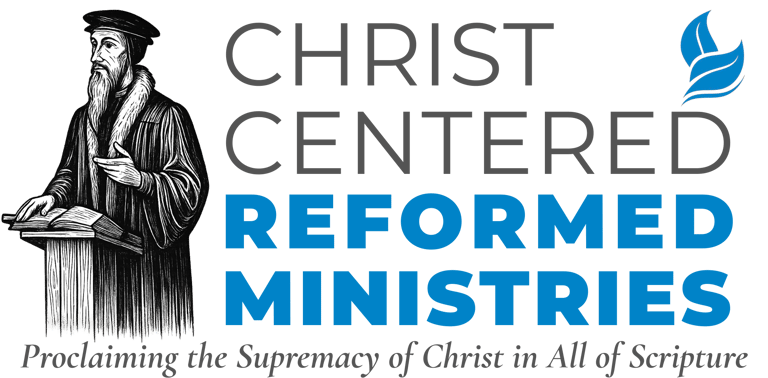The Particular Redemption of Christ: A Study of Limited Atonement in John Chapter 10
This blog post delves into the doctrine of Limited Atonement through a detailed examination of John Chapter 10, arguing that Jesus Christ's sacrificial death was intentionally and effectively made for the elect, as evidenced by His role as the Good Shepherd who lays down His life specifically for His sheep.
THEOLOGICAL ARTICLES
Justin Hoke
2/19/20243 min read


In the spectrum of theological discourse, few doctrines stir as much intrigue and debate as that of Limited Atonement, particularly as it is expounded in John Chapter 10. This doctrine, a cornerstone of Reformed theology, posits that Jesus Christ's atoning work on the cross was deliberately intended for and efficaciously applied to the elect alone. John 10 serves as a fertile ground for exploring this profound theological truth, offering a vivid portrayal of Christ as the Good Shepherd who lays down His life exclusively for His sheep. Through a meticulous examination of the text, guided by principles of literal, historical, grammatical, and contextual Bible interpretation, this blog post aims to provide a compelling and thorough argument for Limited Atonement.
The discourse in John 10 unfolds with Christ’s emphatic declaration of His identity as the Good Shepherd, a metaphor rich with implications about His mission, the nature of His sacrificial death, and the intended beneficiaries of His atonement. "I am the good shepherd. The good shepherd lays down his life for the sheep" (John 10:11). This statement is not merely illustrative; it is doctrinally significant, establishing a specific relationship between the shepherd (Christ) and His sheep (the elect).
A shepherd’s role is inherently selective. He knows his sheep, calls them by name, leads them out, and ensures their well-being. The imagery of shepherding, deeply embedded in the cultural and scriptural backdrop of the time, underscores a deliberate and intimate care for specific sheep. When Jesus articulates that He lays down His life for the sheep, He introduces the foundational premise for Limited Atonement—the atonement is intentional and particular.
The logic of the shepherd-sheep relationship further bolsters the argument for Limited Atonement. In verses 14-15, Jesus states, "I am the good shepherd; I know my sheep and my sheep know me—just as the Father knows me and I know the Father—and I lay down my life for the sheep." The mutual knowledge between the shepherd and his sheep signifies a defined group. This bond is not universal but personal and selective, mirroring the exclusive nature of atonement.
The efficacy of Christ’s atonement is highlighted in His assurance that none of His sheep will be lost: "I give them eternal life, and they shall never perish; no one will snatch them out of my hand" (John 10:28). This promise of eternal security for the sheep is predicated on the effectiveness of Christ's atoning work. It is not a potential or hypothetical atonement but a definite and successful one, applied specifically to those the Father has given Him.
A pivotal moment in John 10 is Jesus' interaction with the unbelieving Jews. In verse 26, He tells them, "But you do not believe because you are not my sheep." This statement is revelatory, drawing a clear distinction between those for whom Christ dies (His sheep) and those who are not His sheep—the unbelieving Jews. The implication is stark: Christ's atoning sacrifice was not intended for those outside the fold of His elect.
The context of John 10, both literary and historical, further illuminates the doctrine of Limited Atonement. Set against the backdrop of Jewish expectations of a Messiah and the shepherd motif pervasive in the Old Testament, Jesus’ declaration serves as a corrective to prevailing misconceptions about the Messiah's role. He is not a political liberator but a spiritual savior, rescuing His sheep from the ultimate peril of sin and death.
The grammatical structure of John 10, particularly the use of possessive pronouns ("my sheep"), reinforces the specificity of the atonement. These pronouns delineate ownership and belonging, indicating that the atonement is not an indiscriminate act but is directed toward those who belong to Christ by divine election.
Critics of Limited Atonement often argue that such a view undermines the universal offer of the gospel. However, John 10, when interpreted within the broader canonical context, does not negate the universal call to repentance and faith. Instead, it underscores the sovereign grace of God in salvation, ensuring that the gospel call, while extended to all, efficaciously brings the elect to saving faith.
The doctrine of Limited Atonement, as elucidated in John 10, finds further support in the cohesive testimony of Scripture. Passages such as Ephesians 5:25 ("Christ loved the church and gave himself up for her") and Acts 20:28 ("Be shepherds of the church of God, which he bought with his own blood") echo the particularity of Christ's redemptive work.
In conclusion, John Chapter 10 offers a compelling, scripturally grounded argument for Limited Atonement. Through the metaphor of the Good Shepherd, Jesus Christ reveals the intentional, efficacious, and exclusive nature of His atoning work. This doctrine, far from being a theological abstraction, presents a profound assurance of salvation for the elect, magnifying the depth of Christ’s love for His sheep and the sovereignty of God in the orchestration of redemption. As we delve into the rich tapestry of John's Gospel, let us embrace the particular redemption of Christ, finding in it the wellspring of our eternal security and the foundation of our faith.
For Further Study
The Five Points of Calvinism by Edwin H. Palmer
The Reformed Doctrine of Predestination by Loraine Boettner
What Is Reformed Theology? by R.C. Sproul
